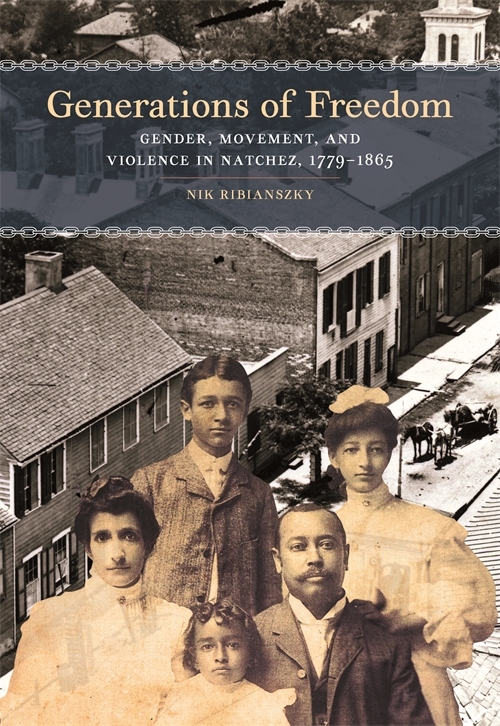
Ribianszky’s work elucidates how the intertwining classifications of class, gender and race shaped Natchez—Mississippi’s free community of color—and how implicit and explicit violence was passed down from one generation to another. To demonstrate this, he presents the concept of generational freedom. Inspired by the work of Ira Berlin, generational freedom is an analytical tool that uses the reverse of this exact idea to trace how generations of free people of color encompassed, piloted and protected their tenuous freedom.
Generations of Freedom tells the stories of people who dwelled in an uncertain world of authorized freedom. Taken together by examining themes like gendered violence, movement and threats to their property and their very bodies, the accounts Ribianszky uses argue that free Black people were active in shaping their own liberation and that of the generations that followed.
